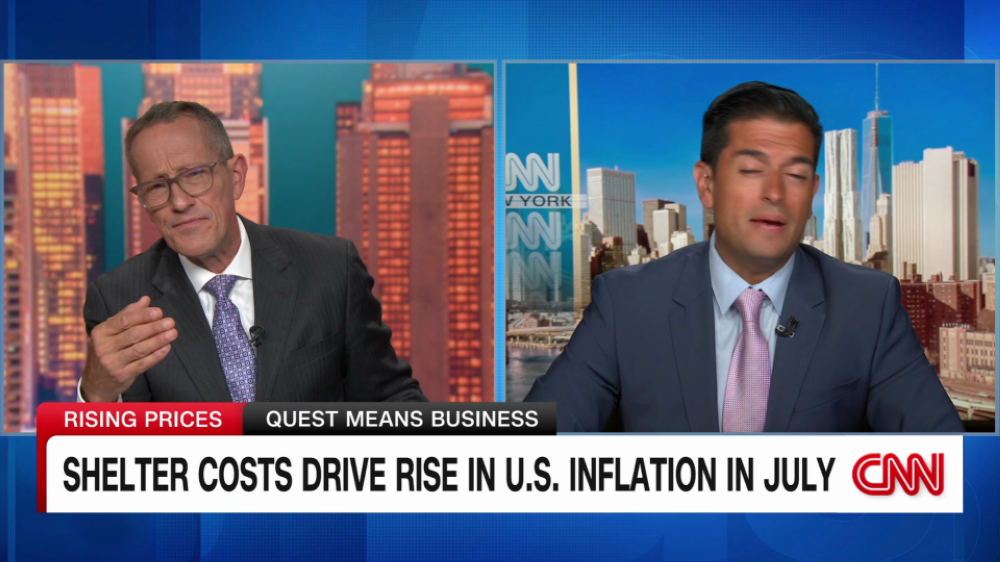US Federal Reserve officials will meet next month to determine whether to raise interest rates for the 12th time to cool the economy or hold them steady, amid disagreements on this, as some officials think the Fed has already raised its benchmark lending rate enough to curb inflation, while others think its too soon to stop.
According to the CME FedWatch tool, it became clear that the central bank has become divided. But right now, financial markets see more than a 90% chance the central bank will agree to pause rate hikes next month.
Managing director of fixed income at Key Private Bank Rajeev Sharma told CNN, "we saw the beginning of the division within the Fed in the minutes for the June meeting.... Some Fed members were opposed to the pause and wanted to go full steam ahead, but they came around, knowing that there would probably be a hike in July."
Fed officials unanimously voted to increase rates by a quarter point to a range of 5.25-5.5%, the highest level in 22 years. Fed Chair Jerome Powell maintained a hawkish tone on fighting inflation in his post-meeting news conference, making it clear that another increase is still in the cards.
CNN noted that the inflation's steady slowdown in recent months has been comforting for both everyday Americans and investors. Financial markets have become hopeful that July marked the end of rate hikes even though the Fed has continued to express hawkishness to keep markets in check, in case inflation proves to be more resilient than expected and central bankers decide to hike again.
Philadelphia Fed President Patrick Harker echoed that sentiment in a speech last week, saying "I believe we may be at the point where we can be patient and hold rates steady."
Atlanta Fed President Raphael Bostic said recently, "we are today in a restrictive stance, and as inflation continues to fall, the degree to which its restrictive actually grows as that gap between the inflation rate and our interest rate widens...So I think that will put enough constraint on the economy that it will continue to slow."
However, CNN said that theres still a more aggressive camp that believes the Fed needs to raise rates again.
Fed governor Michelle Bowman said, "inflation is still significantly above" the Feds 2% target, adding that "given these developments, I supported raising the federal funds rate at our July meeting, and I expect that additional increases will likely be needed to lower inflation to the FOMCs goal."
Chief investment officer at BMO Family Office Carol Schleif said she expects the Fed to hold rates steady in September, but the job markets strength could still give the Fed "ample room" to hike again.
She added "all year, investors have been looking for a convincing and cohesive narrative for a disinflation theme, but were not seeing the labor market soften enough just yet."
The Fed and investors are watching to see if inflation continues to slow without the labor market sharply deteriorating, which would make the case for a so-called soft landing. Some economists say that the unemployment rate has to rise to take excess demand out of the economy and bring inflation down, though others argue that a further decline in job openings could do the trick.
Meanwhile, Bloomberg said that Goldman Sachs Group Inc. economists anticipate the Federal Reserve will start lowering interest rates by the end of next June, with a gradual, quarterly pace of reductions from that point.
"The cuts in our forecast are driven by this desire to normalize the funds rate from a restrictive level once inflation is closer to target," Goldman economists wrote.
On the effects of raising interest rates, Bloomberg warned of a possible recession, noting that there is a risk that the delayed effects of the strongest tightening measure in four decades could push the economy in the United States into recession.
Jonathan Millar, a senior economist at Barclays Capital Inc said that "unfortunately, I dont think the picture on any of this will be clear for at least two quarters, though the fact that inflation has come down has bought the Fed some time, for now....The Fed seems to be well ahead of markets in recognizing that the path to a soft landing is far from assured."
International
CNN: Amid disagreements on interest rate among US Fed officials, holding rates steady in September seems likely

